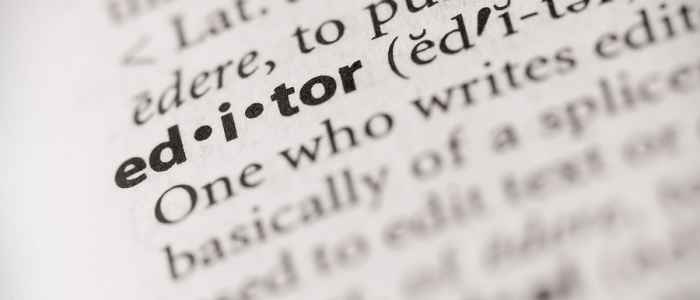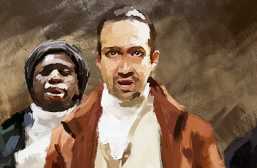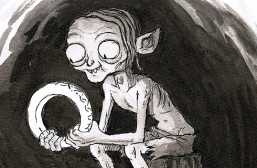Where Did All the Editors Go?
Traveling far for news is a bygone state of affair now. The online availability of news has increased which has led to the prevalence of checking online news increasingly. There is a wide variety of online renowned news posts which are checked regularly by a wide range of audience online. Some of the reputed online news platforms are The Huffington Post, The new Yorker, Buzzfeed and others. These media sites are popularly used by millions of people worldwide on a regular basis. Lately, a common practice that has been largely prevalent among all of these platforms are errors. All of these online news mediums are seen making an ample number of errors which are making it a shame to read the posts.
The errors include grammar errors, spelling errors, syntax errors and many others. Hence, it can be concluded that there is hardly anybody to check the errors which are committed by the writers. Hence, the question have arisen which asks, ‘where did all the editors go?’ This question seems justifiable as editors are the individuals who are responsible for checking on the writing or the errors. There has been a huge decline in the level of quality writing for varied newspapers or magazines. This has taken place due a varied array of factors. Newspaper or magazine organizations are cutting down costs to let of the editorial staff. This has led the way for the writers to proofread or edit their own content. Therefore, this further makes missing of errors or committing the same errors a natural phenomenon.
Cause of the decline
It can also be possible that the organizations are using as much of their voice as possible without causing any hindrance. When the agencies are cutting down on the editorial staff, it is resulting in the cutting of costs or reduction of costs. Another major issue that can be cited as a reason is the presence of news in the audio visual medium. News production goes about a 24-hour cycle while lasting up to three days. This is the approximate time frame in which an audience is interested in a particular topic and its follow-up. The easy availability of talking points and sound clips has been recognized as a great potential threat to the newspapers or magazines print medium.

This has further led to a recoil from the dedicated readers who used to check the news thoroughly in a regular manner. The loyal readers have been seen to be less interested in reading news with the prevalence of large array of mistakes, ranging from grammatical to spelling. The wide array of mistakes, however, pulls a reader back from reading as the mistakes act as major distractions. The editors are plagued by a similar problem which is shrinking advertising in addition to funding sources for the media, the media system’s patterns of ownership along with the influence of the well-established triad of the politics, media, and business.
Most of the editors of the current generation belong to that generation of the journalists who are raised in the media that has emerged in the 90s. This is true in the case of around 80 percent of editors. This lacks professional training but it strong on passion and also political participation. The greater amount of popularity that has been received by audio-visual mediums are reasons that online mediums are facing a shrink in the revenue. The reduction in the advertisement revenue has led to a loss. Thereby, agencies have been resorting to ideas and means to cut costs down. This could be one of the factors of the disappearance of editors from the wide zone.
Furthermore, there has been a rise in the speed of technology with which news are reaching out to the readers. This has led to the avoidance of traditional grammar rules and grammar checking business. The traditional quote of Marshall McLuhan, ‘the medium is the message’ is certainly becoming true. One of the major reasons that can be cited as a problem is the modern times. What matters today is the speed of news that the quality. Traditional thinkers and readers might be bound to traditional forms of spellings, grammar, and syntax, but modern times readers are more interested in the speed. The speed of technology has however taken over checking on the traditional grammar and spellings. Today, it can be seen that there are very few people who actually care about the spellings and mistakes more than the frequency of news.
Today, it has become extremely important that the news reaches faster and hence after the writing is done, the editing is hardly given any importance to. This has however majorly affected the quality of writing. With the rise in competition in the other forms of media, the quality is somehow downsizing. This factor though does not matter to all but have greatly affected some. Some readers have been highly affected by the major mistakes online and do not seem interested reading online anymore. There has been a huge decline in the traditional news coverage, even in major newspapers. Thus, it can be said that it is definitely not at all worthy to try so hard.

It can be argued that whether news sites even have any editors or not, seeing the decline in the quality of writing. The decline of the quality of writing is a true fact as more than half of the readers complain about the errors online. Moreover, a large amount of readership too have gone down. No one seems to take any proper time out to check the articles vehemently. Proofreading is no more done with dedication, resulting in the wide array of errors and mistakes. We have certainly reached a point where the standards of language lack in a great manner. The fact that the standards lack, do not matter anymore. There has been a huge drop in the readership of newspapers which has led to the editors to not care much about the quality or standard of writing. The editors are, however, not seen to do justice to the job they are supposed to be doing.
Digital technology often presents a wide array of choices which are unavoidable and equally appealing to the eyes. This includes the production of slideshows, video, joining social networks or even blogging. The high competition from the fellow news mediums has led to the urgency of news to be delivered faster than checking what has actually been written. Thus, this menace should be taken into consideration in order to bring about changes in the scenario. It is only when the news organizations and agencies give the responsibility to the editors to check up on each article produced, can there be lesser mistakes. The editors need to find out their true responsibilities and act accordingly to uprise the quality of writing. This, in turn, shall provide the readers with an improved reading experience.
What do you think? Leave a comment.











It’s true that proofreading is less frequent online. In a world where we have instant access to so much information, authors have to be more vigilant in their editing process if they want to be heard. You know what they say–a big part of writing is revising!
Great article 🙂
Exactly Lauren!
And many thanks.
All very true. I hate it when my tablet changes my words too and I miss it.
Well done.
My editor tries to find all of my typos and put the commas back where they go. She’ll point out something that doesn’t make sense but always leaves the changes up to me. After all it is my story. That’s the writer-editor relationship I like. And if it doesn’t sell or people don’t like it, that’s on me too. As it should be. We need first readers and editors but we really need to be allowed to craft our own stories. IMO.
There is no need for an editor. None.
I write books for academic publishers, where I notice a definite trend over the last fifteen years to lessen the editing role of the editor.
What concerns me is that most of us editors are now freelance.
I worked for a year at a publishing house, in academic and text books. Not only was it the case that the editors hadn’t studied the subjects they were responsible, but I was utterly disillusioned by the discovery that the editor I worked for quite commonly didn’t actually read the books we were publishing.
I don’t ordinarily comment on these articles with such editorial vigor, but — given the ironic nature of this particular article — it felt morally wrong for me to let it pass by unscrutinized:
– “The new Yorker”: Capitalize the “N”
– “Lately, a common practice that has been largely prevalent among all of these platforms are errors.”: Errors are not a “common practice” (I think you meant to say “common occurrence”). “Practice” implies intentionality.
– “Hence, the question have arisen which asks, ‘where did all the editors go?’”: Replace “have” with “has” since the question is not plural. Also, you don’t really need the “which asks.” It just makes the sentence read more awkwardly than necessary.
– “Newspaper or magazine organizations are cutting down costs to let of the editorial staff.”: Did you meant “to let [go] of”? That’s the only guess I have which could make this sentence make any sense.
– “Therefore, this further makes missing of errors or committing the same errors a natural phenomenon.”: Misuse of the term “natural phenomenon.” Monarch butterfly migration is a natural phenomenon; moss growing on trees and rocks is a natural phenomenon. What you’re describing can better be referred to as a “regular occurrence.”
– The first paragraph after your bolded subheading begins with two nonsensical statements.
– Where is the evidence (in form of citations and/or statistics) to support your claims? I’m not saying that you’re necessarily wrong, but I’m also not going to take your word for it when there’s no indication that you’ve done any research on the subject on which you’re now presenting yourself to be an authority.
– “Most of the editors of the current generation belong to that generation of the journalists who are raised in the media that has emerged in the 90s.”: Cut out the “the” before “journalists”; replace “who are” with “who were”; cut the “has” before “emerged”; put either an apostrophe or “19” before “90s.”
– “80 percent of editors”: Citation please. 1) That statistic feels unlikely, and 2) even if it didn’t, you word is not enough.
– “This lacks professional training”: WHAT exactly “lacks professional training”? Your seemingly made up statistic about 80% of journalists working with 1990s media and technology? What does one thing have to do with the other?
– “The greater amount of popularity that has been received by audio-visual mediums are reasons that online mediums are facing a shrink in the revenue.”: Couple things: 1) “Popularity” in an intangible abstract concept, making it difficult to quantify in terms of “amount.” Use real statistical measures. 2) Are “online mediums” NOT forms of “audio-visual” media? And, if not, what exactly are you suggesting? That the internet is losing out to TV news? I don’t need to see a study to know that’s probably wrong. 3) Perhaps the confusion is a result of the awkward phrasing — i.e. something that an editor would notice and fix.
– “This could be one of the factors”: So much of your argument is predicated on cutbacks leading to laid off editors leading to improperly edited content (which you repeat more times than necessary to convey such a simple point btw). That being the case, is it that “this COULD be one of the factors”? I don’t blame you for not wanting to make authoritative claims — especially considering what little, if any, research you’ve done — but then why even bother trying to diagnose the problem if your not going to commit to your conclusions. This is an opinion piece at best, and a rather weak one at that.
– “The traditional quote of Marshall McLuhan, ‘the medium is the message’ is certainly becoming true.”: Do YOU understand the point that you’re trying to make here? Because I certainly don’t (and I’ve read McLuhan). Your just parroting the point that Munjeera made in the Helpful Notes of the original topic — you seem to have done a lot of copy and pasting from there when composing this article — but your lack of context and understanding has made her point lose all its meaning.
– “One of the major reasons that can be cited as a problem is the modern times.”: By this logic, we could solve the problem by reverting back to the year 1856. The “times” aren’t the problem; it’s the attitudes which characterize the times.
– “What matters today is the speed of news that the quality.”: I’m assuming the “that” was supposed to be “than,” but even then we’re still a couple words away from a coherent sentence. Needs the addition of a “rather than” or “more so than.”
– You use “hence” too much. Maybe invest in a thesaurus.
– “after the writing is done, the editing is hardly given any importance to.”: Never end a sentence with a preposition! This is exactly the kind of grammatical error that your article is lamenting.
– “This factor though does not matter to all but have greatly affected some.”: If your reader fails to make the leap that “all” and “some” are referring to “readers” (I had to read it six or seven times to get what you were trying to say), the entire sentence makes no sense.
– “highly affected”: This feels like an over-dramatic choice of words for what you’re describing.
– Your unfounded claims are beginning to contradict one another. Is the huge decline in “traditional news coverage” or is it in “online mediums”? Unless your point is that news media in general is vanishing, it really can’t be both. Is your argument that people are leaving online sources because they’re fed up with typographical errors, or is it that they’re leaving old media because the frequency of content in new media is more important to them than errors?
– “Thus, it can be said that it is definitely not at all worthy to try so hard.”: What? Wouldn’t the decline in readership make it MORE “worthy to try so hard” to reclaim their diminishing readership?
– “The decline of the quality of writing is a true fact as more than half of the readers complain about the errors online.”: 1) Once again, without a citation for this statistic, I have no choice but to assume you made it up. 2) If this is true, then how can you say that this is caused by readers’ indifference to errors so long as the frequency of content remains high? Wasn’t that the point you were trying to make? 3) Using comment section complaints as evidence that this “is a true fact” does not constitute a valid source (even if it was properly cited). If more than half of people commenting on a BuzzFeed article about Hilary Clinton complain that a woman shouldn’t be allowed to be president, that doesn’t make their ridiculous consensus true.
– “Proofreading is no more done with dedication, resulting in the wide array of errors and mistakes.”: Should be “no longer.” Also, I couldn’t agree more.
On a more general note, you have to understand that “quality of writing” and “quality of proofreading” are not synonymous. Something can be well written but full of typographical errors, or poorly written with no mistakes at all. I’d like to think that most intelligent readers don’t let a few spelling and syntax errors scare them away from reading what can otherwise be considered quality content.
I hope I have not come across as being too harsh. I am aware that the Artifice is not an actual journalistic resource that necessitates the same level of editorial diligence that you’re calling for; however, if you’re going to make such bold claims, it’s important to lead by example (lest come across as a hypocrite). On that note, if you notice any errors in my rather lengthy comment, I encourage you to call me out on them. Though I don’t hold a comment section to the same standards as the content above it, the only way that we can improve the current state of editing is to begin taking it more seriously. Or, if nothing else, let the amount of untended errors in this article be a humbling experience, and treat others’ content with the same critical generosity that you’d like them to grant yours.
Hurry up and publish your first article so that you can be a part of the editorial team. I look forward to have you with us!
Since you have an eye for catching mistakes, you should really put out that first article and recommend revisions.
Another reason online articles can be full of errors because of the desire to get out a quick story. Writers might sacrifice editing in order to get quick views, and to get the story out before other websites.
Lol best comment ever.
Totally agree!
I’m a professional editor and I wasn’t sure whether to scream, or to laugh out loud at the supreme irony of the article in question. Ultimately, I did both. Editors are still out there, mostly freelance now. Even the best of the writers for whom I edit – and there are some fine writers out there – need to have their text edited (or at least proofread) and are highly appreciative of my efforts with their work. The end result is a polished and professional piece to which an author is proud to put their name.
I’ve subbed, proofed and copy-edited for 20 years, and the state in which some of the text turned up made my hair curl.
I often wonder if the use of computers has contributed to this problem. There does sometimes seem to be an assumption that they are a good thing (which I would not dispute), but they also increase the potential for problems.
I’ve given up on more than one book recently because of distracting typos.
As an avid reader I have noticed in recent times a definate trend towards sloppy editing, even in literary novels. The odd over-looked typo is acceptable, and there is always a wide variety of punctuation styles depending on the writer and the style, but there is little more annoying than factual or continuity errors in books and I have come across both more than once lately.
The role of a good editor should be to deliver a consistently high quality publication.
Finding the right editor is an arduous task.
Editors still edit, but it seems they do a lot less of the blue pencil developmental editing than they did 40 years ago. I’ve read stories about editors in the 60s and 70s going off to cottages with writers for three weeks to essentially re-write a novel. Or nursing a promising author through a couple early novels until they master their craft and come up with something really good by the third try. That clearly doesn’t happen anymore.
And it seems once authors are commercially successful, editors don’t do much more than proof the copy. Because looking at some of the works of Stephen King and George R.R. Martin, with kludgy phrases repeated over and over again, and hugely overwritten passages, it’s impossible to believe a professional editor had any real power to revise those texts.
Regarding heavyweights such as King, I would imagine editors might be a bit leery of heavy-handed editing.
As it all moves in the next few decades to self-publishing on the Internet, and reading via e-book readers connectd to the cloud, editing will become the responsibility of the author. End of problem. If it’s full of errors then, or not what the author intended, blame the author.
Talented editors are few and far between just like any other profession. Out of several, just speaking personally, I’ve two who were superb and who I have a many decades long friendship with., The others were venal, or filled with conceit, or challenging authors to seem ‘important’ when in fact coming off as anklebiters with no sense of proportion, or wanting to fight to raise themselves out of their depressions, or desperately straining to ‘win awards’ for their editing, or trying to live off the success of others, or acting as though they were granding a kingship on an author without mentioning of course the contract they themselves negotiated takes about 92% of the proceeds [authors ought never be grateful for such pittance] or so taken with their penthouses in ‘hattan’ that they wouldnt know a horse from a house if it rose by.
Editors are like buggy whips, without the whip part, in my experience, humbly said.
The organization I used to work for, let go of their copy editors due to economic pressures. Sadly the content they publish now is riddled with grammatical errors and typos. Sadder still is that no one wants to claim responsibility for the decline in content quality.
Going into this field I can really say this is truth! And, being an EIC is especially hard when you don’t know the necessary skills in the writing world!
You made some very good points in this article. As a college professor, I feel like I am always reminding my students the need to proofread their work. Many rely on technology to proofread for them or just do not seem to care to take the time to do it. I have been told by several students that I am the only professor they have that worries about little grammar or spelling errors. This leads me to believe that it is not just the students that are relaxed on this but other professors and instructors as well. I was actually shocked to hear these statements from students. A fellow professor said it was a younger generation, “millennial” thing. I quickly pointed out that I am a millennial and there are many professors that are of older generations, so calling this a “millennial” thing is inaccurate. It is seems that everyone is to busy focused on the quantity and has lost sight of quality. Again very thoughtful article!
I have gotten into the habit of always checking and re-checking myself when I write anything. Using bad spelling and bad grammar as an adult is just evidence of laziness.
Good ideas! My mother used to be the editor of a magazine when I was little, but she had to quit when we moved. However, any piece of writing material she reads through she’ll point out the mistakes. I know many people like her who actually become frustrated with the low quality of editing these days. It really is something that publishers and writers need to focus on a little more.
This is so true. I am leaning toward the editing career path and enjoy making writing better. Editors rise up.
Lots of truth here. It’s a tough business – not only for editors who lose their jobs or get demoted to freelance status, but also for the “survivors,” given the effects of all these changes on the remaining staff positions. In my experience working with smaller/independent magazine publishers, there are often a lot of things going on behind the scenes that make it very difficult for even really good editors to do their jobs. For example, a lot of these publications include content contribution and pre-press approvals for clients as part of their ad sales incentives. Here’s a situation I’ve both seen and personally experienced at such publications many times:
– A client who is neither an experienced nor a gifted writer submits a terrible article to the magazine.
– The editor doesn’t have the authority to make significant changes to contributions from clients without getting permission, so he/she submits suggestions for improvement to the client contributor.
– The client contributor is uninterested and insists that the article run as-is.
– The publisher automatically sides with the client contributor and tells the editor to run the article as-is in spite of the errors/editorial issues in order to keep the client happy.
– The terrible article runs in the magazine – and *other* clients and readers complain about poor editorial quality and “incompetent” editorial staff.
– The publisher gets really upset and blames … the editor.
Now, I don’t have the numbers in front of me, but based on both what I’ve experienced and what I’ve heard, I suspect that practices like this are fairly common in the publishing industry. So if editors are having to deal with frustrating situations like this on top of everything else (e.g., low pay, massive workloads, etc.), it’s really not surprising that so many of them either just stop caring or jump ship altogether. It’s unfortunate, but I don’t blame them.
I think the lack of editors in most online news sources is an unfortunate product of our immediate need for information and news. Gone are the days where everyone read the newspaper in the morning to catch up on the news from the day before. With access to seemingly unlimited information at our fingertips, there is no need to wait. Therefore, the editing that does happen is very minimal and often not well done. For those of us frustrated with the errors that riddle most news and articles, there are great news sources with great editors such as the New York Times and NPR.
Good article. Attention to detail is so important. Writing errors and a general lack of reflection are side effects of instant gratification from a torrent of information. Readers are taking sips from fire hoses, 24 hrs a day, seven days a week. I would be happy to join the community of Editors. I serve on Editorial Boards of several peer-reviewed scientific journals, and write fiction as well.
There is definitely a trend in websites wanting to get their articles out before their competitors, to be the first to spread new information. However, this constant rush of communication leads to miscommunication or misrepresentation of information. Editors are an important middle-man to ensure that information is not distorted or confusing to the audience but, unfortunately, not all websites are willing to sacrifice the time it takes to produce top-notch articles. Even the best writers make mistakes and need a second eye to evaluate their work. I hope a decline in readership for badly written articles will motivate websites to give the editing process greater attention.
I agree that editors are lacking in today’s print, and I’ve noticed errors in a local newspaper. One noted mistake was “there” that would have been the correct “their” if spell-check and a correction were practiced. If publishers are relying on spell-check to pocket the cost of employing editors, the practice is obviously failing in some places. After I wrote this and ran a spell-check I found three errors to correct. So perhaps publishers and writers need to be more diligent in using spell-check and correcting errors. The combination of fewer paid subscriptions and competition from social media is hurting print media. Not practicing spell-check and error correction will also hurt them if not done more effectively.
I am curious to know if the author’s purpose for penning this article was to show just what type of product is generated when editing is lacking or nonexistent. The evidence of failure in editing is prevalent in so many places. It can be seen on billboards, highway signs, church marquees,
pages of novels, and other print materials, television news programs where information is scrolled across the screen. The list goes on and on.
I do not necessarily think that it so much attributable to the cut in editorial staffing as it is in the development by those in the habit of perpetual texting using the “texting format” of writing. I see it constantly in papers written by college students, even those who are vying to get into the field of communications and media. The rules of grammar have gone completely out of the window by a large number. English professors struggle to correct poorly formed habits.
Since the author’s article is fraught with error, I am not sure of just what the author’s intention is.
As an aspiring editor, this concept makes me particularly sad. I couldn’t help but notice that the post itself was full of mistakes that should have been caught by the writer or editor(s). Even in complaint, we often fall into the trap we hate for the same reasons we establish ( I know I’m guilty too).
Last year I had the privilege of running into an editor in the coffee shop I worked at, and had the opportunity to ask her what advice she would give to someone like me, looking to fill her shoes one day. After thinking on it for a few minutes she told me, “Know when to let go.” This post discusses the negative effects time pressure put on many publishers and editors and they couldn’t be any more real. This experienced editor who clearly had a passion for perfection told me that she had knowingly published mistake-ridden manuscripts because of time restraints, and had to learn what she would allow herself to give into and what she would give her attention to when pressed. Editors are still capable and passionate, but media has changed, and they have had to change with it.
Thank you for your view on this very important topic. As an English Professor of Composition, I cringe when I see bad grammar or missing words or misspelled words. I think quality must be a factor with quantity. I know that I need an editor just because it is good writing practice to have on. If I’m surfing the web, looking at online news articles, or even just looking at a potential job opportunity, if the writing is not good, I shy away from the article and the website because someone (an editor) did not do enough investigation, research, or proofing. Bad grammar and typos make me feel that the source is not trustworthy. So, I hope that editors have a voice in the matter where ever they are working because I bow down to a good editor and I appreciate his/her work. As an inspiring writer, I can’t live without an editor.
good to know
Thank you, ProtoCanon!
I couldn’t finish reading this it was so badly written. Initially, I thought the writer was being deliberately ironic. She is lamenting the loss of the copy editor, yet her copy is so riddled with errors as to be nearly incomprehensible. Thank you for pointing out her numerous errors. Did she respond? (If so, I hope it was with a “thank you.”)
Interesting read.
Another point I would like to add is that fewer people are learning proper grammar rules. I remember in primary and high school, the teachers either did not know themselves, or had attached themselves to particular practices which were actually incorrect.
It’s great to see that there is still some awareness out there regarding the importance of editors, and to acknowledge the role of proofreading and editing. I really enjoyed the content of your post, although would also encourage some extra proofreading for this piece.
It’s nearly impossible for writers to catch every mistake in their own work, or find everything that could be improved. We all get attached to our writing, and our minds will even overlook what we have written and read what we think we wrote. Therefore, it’s necessary to find a second pair of eyes (preferably attached to a professional editor) to do the copy editing and pick out what you missed
In terms of news editing mistakes, part of the problem lies in the nature of today’s media landscape. The downsizing of newsrooms in the face of economic pressure and working under the pressure of a 24 hour news cycle means that editing has often fallen short. Journalists today are not only journalists: they have taken on new tasks as part of this role to stay competitive. They are researchers, interviewers, photographers, camera operators, digital content creators, social media curators, writers AND their own editors.
Who let this article see the light?